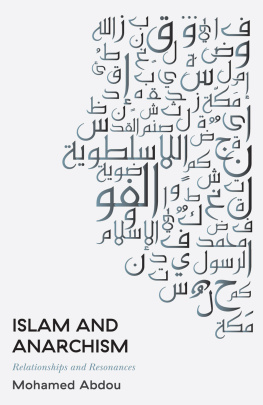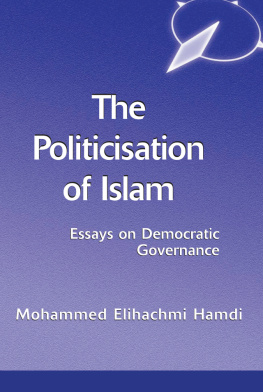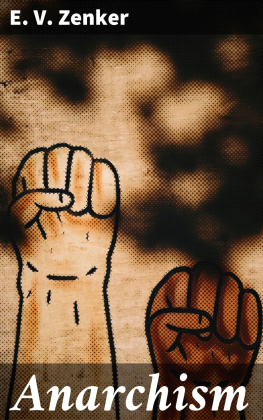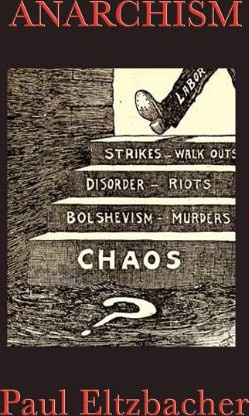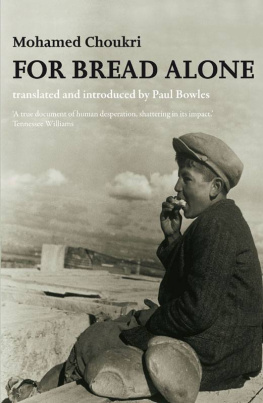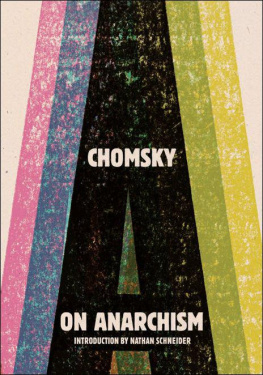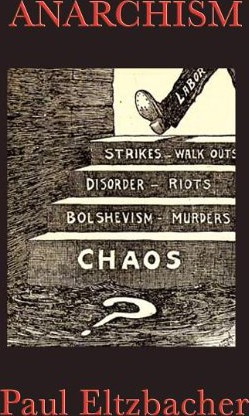Mohamed Abdou - Islam and Anarchism
Here you can read online Mohamed Abdou - Islam and Anarchism full text of the book (entire story) in english for free. Download pdf and epub, get meaning, cover and reviews about this ebook. publisher: Pluto Press, genre: Politics. Description of the work, (preface) as well as reviews are available. Best literature library LitArk.com created for fans of good reading and offers a wide selection of genres:
Romance novel
Science fiction
Adventure
Detective
Science
History
Home and family
Prose
Art
Politics
Computer
Non-fiction
Religion
Business
Children
Humor
Choose a favorite category and find really read worthwhile books. Enjoy immersion in the world of imagination, feel the emotions of the characters or learn something new for yourself, make an fascinating discovery.
- Book:Islam and Anarchism
- Author:
- Publisher:Pluto Press
- Genre:
- Rating:4 / 5
- Favourites:Add to favourites
- Your mark:
- 80
- 1
- 2
- 3
- 4
- 5
Islam and Anarchism: summary, description and annotation
We offer to read an annotation, description, summary or preface (depends on what the author of the book "Islam and Anarchism" wrote himself). If you haven't found the necessary information about the book — write in the comments, we will try to find it.
Islam and Anarchism — read online for free the complete book (whole text) full work
Below is the text of the book, divided by pages. System saving the place of the last page read, allows you to conveniently read the book "Islam and Anarchism" online for free, without having to search again every time where you left off. Put a bookmark, and you can go to the page where you finished reading at any time.
Font size:
Interval:
Bookmark:
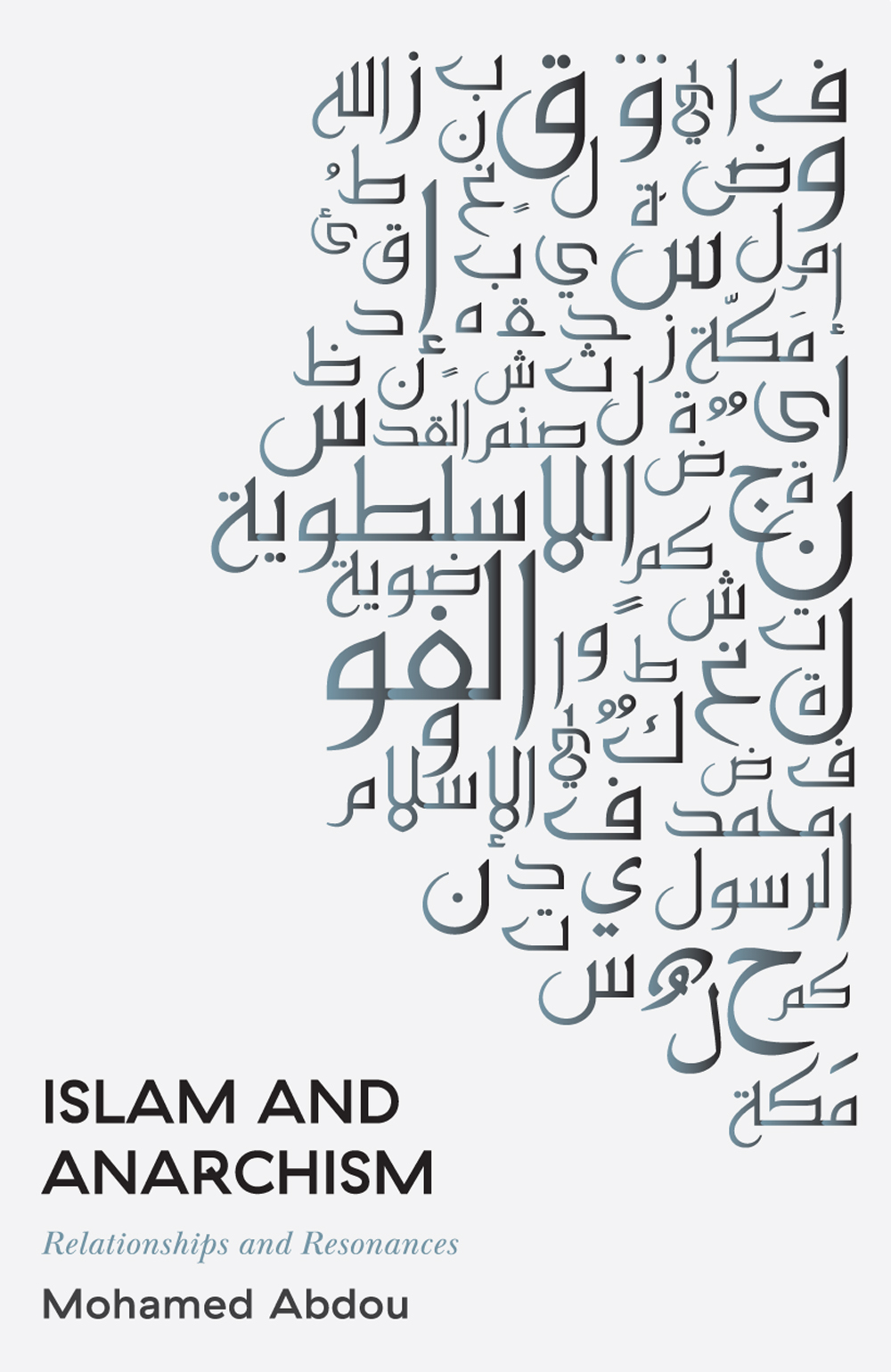
Islam and Anarchism
This is one of the fiercest books Ive ever read. It is a call to action. It is conceptually rich and gives us new methodological tools for thinking theory and politics together. It is unrelenting in its critique of liberal assimilationist tendencies in diasporic and BIPOC knowledge production and movement organizing. Abdou is a truth-teller of the highest order. Drawing together disparate geographies and thought into a dazzling web of interconnectedness and dialogue, Islam and Anarchism proffers a kaleidoscopic vision of what could be otherwise.
Jasbir Puar, author of Terrorist Assemblages and The Right to Maim
A passionate plea for a spiritual decolonial movement. Mohamed Abdou advances a vision of Islam that is abolitionist at its core, reminding us that Islam has been and can still be a religion of the oppressed, one that is anti-capitalist, egalitarian, anti-ableist, antipatriarchal, queer feminist and for Muslims and non-Muslims alike.
Sherene H. Razack, Distinguished Professor and Penny Kanner Endowed Chair, Gender Studies, UCLA
An uncompromising queer-feminist vision of decolonial, abolitionist, and anti-capitalist praxis that is keyed to the pluralistic traditions of Islamic spirituality and anarchic thought.
Iyko Day, Elizabeth C. Small Associate Professor of English and Critical Social Thought, Mount Holyoke College, Massachusetts
Relationships and Resonances
Mohamed Abdou

First published 2022 by Pluto Press
New Wing, Somerset House, Strand, London WC2R 1LA
www.plutobooks.com
Copyright Mohamed Abdou 2022
The right of Mohamed Abdou to be identified as the author of this work has been asserted in accordance with the Copyright, Designs and Patents Act 1988.
British Library Cataloguing in Publication Data
A catalogue record for this book is available from the British Library
ISBN 978 0 7453 4191 0 Hardback
ISBN 978 0 7453 4192 7 Paperback
ISBN 978 1 786807 14 4 PDF eBook
ISBN 978 1 786807 15 1 EPUB eBook
This book is printed on paper suitable for recycling and made from fully managed and sustained forest sources. Logging, pulping and manufacturing processes are expected to conform to the environmental standards of the country of origin.
Typeset by Stanford DTP Services, Northampton, England
Simultaneously printed in the United Kingdom and United States of America
How did it become a universal truth that electoral democracy is the sole democracy model that most are willing to participate in? When did it become acceptable that governing politicians could truly represent the governed you, me, and us? When have enshrined laws ever compelled self-made men and capitalist-corporations to act ethically or in any peoples interests, particularly in a contemporary neoliberal age in which there is no separation between capitalism and nation-states, or politics and economics? This book attends to these questions. Although the histories of individual Muslim anarchists or anarchistic Muslims, from early twentieth century figures such as Gustave-Henri Jossot, Isabelle Eberhardt, Shibili Shumayyil, and Leda Bruna Rafanelli to more contemporary thinkers such as Peter Lamborn Wilson, Michael Muhammad Knight, Abdennur Prado, and Yakub Islam, are well known, little has been written or imagined about how the Holy Qurn and the Sunnah through the adth the Prophetic practice and oral tradition could be used to flesh out the theology, politics, and philosophy of an Islamic anarchism. Starting from the position that Islm is not a monolithic, unified belief system, but a heterogeneous and pluralistic series of traditions, perspectives, and practices, Islam and Anarchism constructs an anarchistic interpretation of Islm and an Islamic interpretation of anarchism, which I call Anarcha-Islm. It offers a decolonial, social justice framework that elides the prevalent Orientalist and Fundamentalist tropes of Muslims and Islm and seeks to interweave Indigenous, Black, and People of Colors lives and narratives together.
As a participant in the Orientalized Arab Spring/Islamist Winter uprisings and as an anarchist and a Muslim settler in Turtle Island, I have witnessed troubled times as a result of extreme divisions that exist between these two identities and communities. In response, I offer an Anarcha-Islm that disrupts two commonly held beliefs: one, that Islm is necessarily authoritarian and capitalist; two, that anarchism is necessarily anti-religious and anti-spiritual. Anarcha-Islm is a basis for exploring a new transnational politics and an ethics of friendship and disagreement between these traditions in the context of both the Tahrir uprisings in Egypt and what Richard J.F. Day has called the newest social movements in settler-colonial societies of the U.S./Canada.
The book operates from the premise that colonialism never ended in settler-colonial societies such as the U.S./Canada or in franchise post-colonial societies such as Egypt that inherited the capitalist-State model. Since modernity, Muslims have been globally struggling with an exponentially growing identity crisis, which has led to two reactionary responses. The first response is that we seek to become neo-Fundamentalist terrorists re-enacting our colonially internalized traumas by adopting wanton-impotent violence as a sole holistic strategy. This is exhibited in non-statist movements such as al-Qaeda and proto-statist movements such as ISIS that have embraced warped notions of non-Qurnic concepts as the Caliphate as well as Qurnic concepts as Umma (i.e., a global community of Muslims that historically and traditionally included non-Muslims). The second response is one in which we, as Muslims, re-enact projects of self-Orientalization. An example of this is how diasporic Arabs, Muslims, South West Asians, and North Africans in the U.S./Canada strive to become good law-abiding citizens, who reify and mimic anti-Blackness and participate in the U.S./Canadian states settler-colonization of Indigenous peoples. Furthermore, self-Orientialization does not only occur in the context of assimilation: it was visible in the initial 18 days of the 2011 Tahrir Uprisings. During Tahrir, Egyptians were united under the false banner of patriotic nationalism and abstract chants of freedom, bread, social justice that camouflaged ethical-political, ethnic, gendered, and spiritual factional differences between them.
Anarcha-Islm can help diasporic Muslims under Euro-American assimilation as well as Muslims in predominantly conservative societies such as Egypt to begin again the transnational radical recreation and re-imagination of their subjectivities and social justice orientations in a way that is conducive to Islms post- 9/11s confrontations with a Euro-American Age of Terror. Anarcha-Islm is vital in light of the Euro-American perception that Muslims are incapable of assimilation as well as the global perception of Muslims as unable to incept suitable social justice alternatives to Euro-American capitalist nation-state paradigms. The absence of Anarcha-Islm from social movement horizons leads Muslims, Arabs, South West Asians, and North Africans in non-Euro-American and Euro-American societies to engage in false (neo)liberal-reactionary choices in the form of Orientalism and Fundamentalism. This is stated while noting that an underlying premise of this book is that the so-called East and West are not in a binary relationship, but rather represent a discursive formation that in fact obscures dialectics that cross-cut identities, migrating bodies, and movements. No one is completely oppressed or an oppressor, a victim or victimizer, and in the absence of decolonization all we learn from our internalized violence, trauma, and victimization is its reproductive radiation upon others. That does not deny the subjects of violence agency. It merely affirms that fascism is a mass psychology that has already won, given how we all embody micro-fascistic tendencies in light of our positionalities and the distinct penalties and privileges structurally and symbolically afforded us across race, gender, sexual practices, abilities, age, class, and so forth. Revolutionary social change is not a narcissistic affair embodied in individualistic notions of self-care but rather one that represents a collective responsibility that is also conditioned by land as the existential-spiritual-environment that animates, if not creates, us as subjects.
Font size:
Interval:
Bookmark:
Similar books «Islam and Anarchism»
Look at similar books to Islam and Anarchism. We have selected literature similar in name and meaning in the hope of providing readers with more options to find new, interesting, not yet read works.
Discussion, reviews of the book Islam and Anarchism and just readers' own opinions. Leave your comments, write what you think about the work, its meaning or the main characters. Specify what exactly you liked and what you didn't like, and why you think so.

